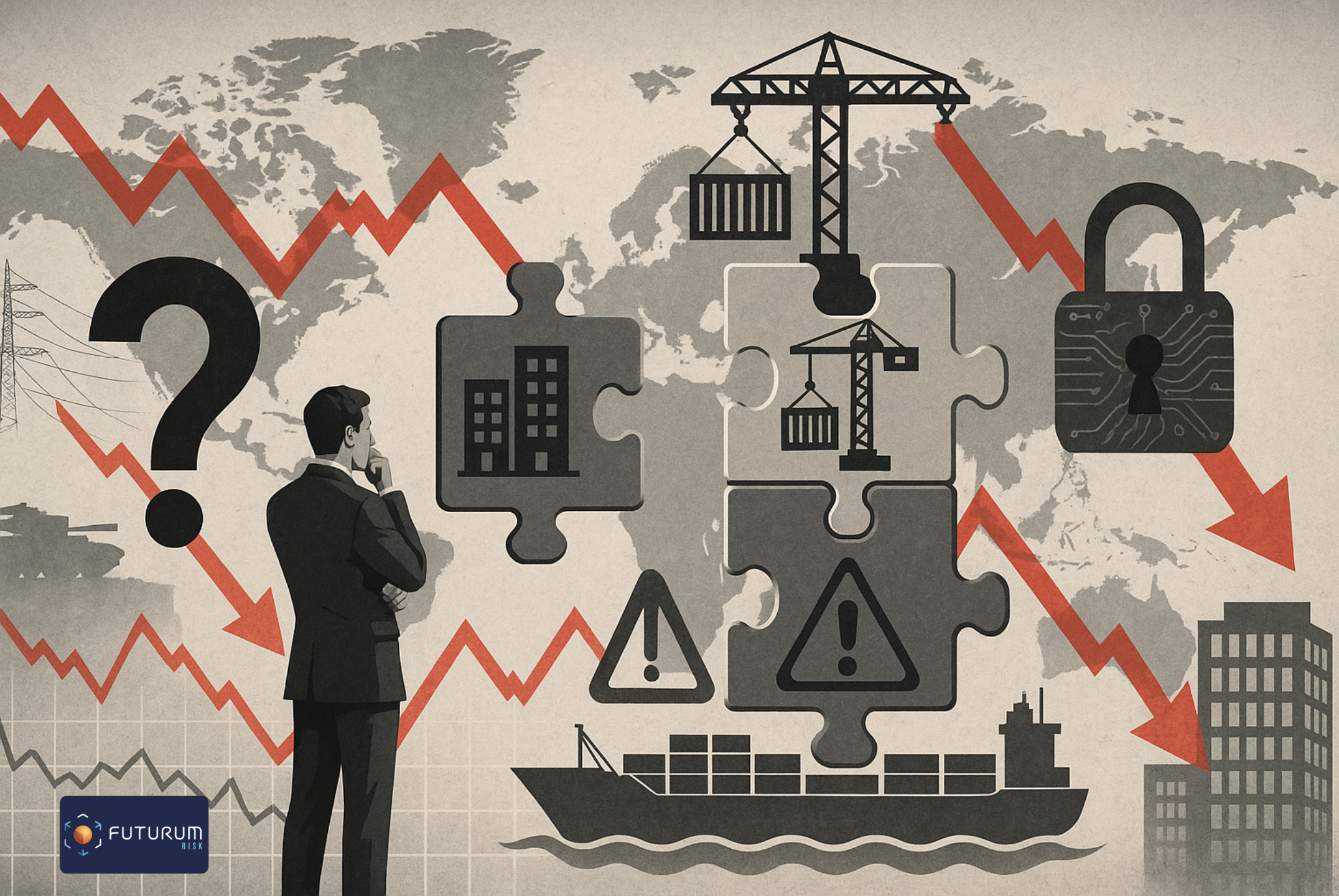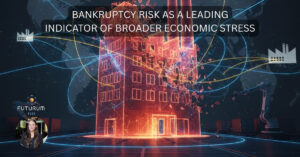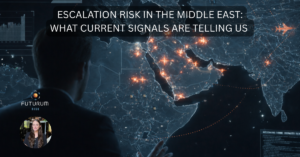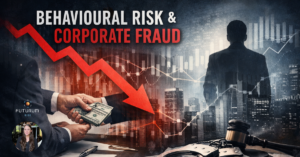The Cost of Uncertainty Has Never Been Higher
In times of volatility, every deal, expansion, and partnership hinges on rigorous geopolitical and intelligence-driven due diligence. The global business environment in 2025 is defined not just by volatility, but by compounding uncertainty.
Political overreach, regulatory chaos, digital espionage, and quiet financial deceit, today’s M&A and market expansions are navigating an environment shaped by mounting, often invisible threats. It’s no longer enough to tick compliance boxes or gather a few board-level references. Businesses and investors alike must now account for geopolitical undercurrents, behavioural risk profiles, and conduct deeper, intelligence-driven due diligence than ever before.
Gone are the days when red flags were obvious. Today, reputational ruin can stem from a hidden link to a politically exposed person (PEP), an executive scandal buried beneath press suppression, or an unnoticed third-party supplier embedded in a sanctioned regime. In a world where perception, politics, and risk are deeply intertwined, the stakes have never been greater.
From Conflict Zones to Boardrooms: Why Geopolitical Risk Now Demands Business-Led Intelligence
Following our recent analysis of global geopolitical flashpoints, it’s clear that uncertainty is no longer confined to national borders or foreign policy debates. It is now woven directly into the operational, financial, and reputational fabric of businesses worldwide.
This week, we sharpen our focus: What does geopolitical risk mean for corporate decision-making? How are market developments, leadership scandals, regulatory volatility, and exposed supply chains reshaping the future of M&A, cross-border investment, and reputation management?
Uncertainty hasn’t just gone global, it’s gone commercial.
Why Today’s Uncertainty Demands Smarter Due Diligence
According to UNCTAD, global foreign direct investment fell 11% in 2024 and continues to decline in 2025, largely due to market fragmentation, protectionism, and regulatory unpredictability. Dealmakers tread cautiously as economic nationalism, new sanctions regimes, and opaque executive conduct increasingly derail M&A activity across markets.
Leading Private Equity firms, investment houses, and corporate strategists demand more than balance sheets. They need clarity on who they’re dealing with, how exposed their targets are, and where legal, reputational, or operational blowback might emerge.
This is where Futurum Risk plays a pivotal role: bridging traditional due diligence with intelligence-led, region-specific analysis that reveals the geopolitical, behavioural, and reputational dynamics shaping every business decision.
Seven Hidden Dangers Undermining M&A in 2025
- Executive Misconduct
Undisclosed executive misconduct continues to be a major risk factor in M&A deals, often emerging long after transactions close and causing severe financial and reputational damage. Beyond financial fraud, misconduct can include ethical violations, harassment, insider trading, or regulatory non-compliance hidden beneath layers of corporate secrecy.
The case of CaaStle (formerly Gwynnie Bee), where executives falsified financials to mask a large-scale scam, exemplifies how undetected behavioural risks at the leadership level can nearly sink a company. Proactively mapping executives’ digital footprints, past controversies, and even private communications can provide early warnings and prevent shocks that jeopardise deal value. - Politically Exposed Persons (PEPs)
The involvement of politically exposed persons in business transactions introduces heightened regulatory scrutiny and sanctions risk. PEPs may use their influence to obscure illicit activities or gain unfair advantages, often through complex ownership structures involving family members or offshore entities.
The corruption investigations into Glencore, which revealed bribery schemes involving officials in Nigeria, Cameroon, Côte d’Ivoire, and the DRC, underscore how hidden ties to politically exposed persons (PEPs) can unravel major operations. In the wake of these revelations,Glencore faced billions in fines and was forced to restructure parts of its operations, a cautionary tale of how undisclosed PEP connections can derail deals, trigger sanctions, and inflict lasting reputational damage. Robust PEP screening must go beyond the obvious, tracing extended networks and offshore affiliations to avoid costly entanglements and regulatory fallout.
-
Sanctions Evasion Through Friendshoring
In response to tightening international sanctions, some companies resort to “friendshoring”, relocating or establishing subsidiaries in politically aligned or less-regulated countries to circumvent restrictions. Chinese technology firms creating subsidiaries in Latin America to bypass US tech bans illustrate this growing trend.
This tactic can introduce contaminated supply chains and compliance risks, often invisible in standard due diligence. Forensic tracing of product origins, supplier networks, and ownership structures is essential to detect these evasive maneuvers before they compromise transactions or result in costly regulatory breaches. -
Supply Chain Vulnerabilities
Global supply chains remain fragile and exposed to geopolitical unrest, trade disputes, and disruptions. Disruptions in Southeast Asia, including factory shutdowns and civil unrest, have led to the suspension of key pharmaceutical production lines, echoing a wider trend of fragility across biotech and manufacturing supply chains. At the same time, evolving sanctions regimes and regional conflicts continue to destabilise supplier networks and delay time-sensitive operations across multiple sectors.
Evaluating supply chains requires a granular audit of upstream and midstream suppliers, assessing jurisdictional risks, financial viability, and diversification strategies. Identifying chokepoints and a lack of redundancy allows companies to proactively mitigate risks that could otherwise stall operations or cause financial loss. -
Cyber & Infrastructure Threats
Cybersecurity risks are increasingly intertwined with geopolitical tensions, with state-sponsored cyber activities targeting critical infrastructure and commercial projects. The Netherlands has accused Russia of conducting surveillance on its offshore wind farms, with Russian research vessels observed mapping these energy installations. This activity underscores the complex intersection of cybersecurity and national security priorities.
Digital infrastructure audits that assess geopolitical exposure, data flow routing, and vulnerabilities at firmware and hardware levels are vital to identify hidden cyber threats. Failure to detect these risks can lead to espionage, data breaches, or operational shutdowns, threatening both financial and strategic outcomes. -
Regulatory & Trade Volatility
The rapidly shifting regulatory landscape and trade policies create significant unpredictability for businesses. The sudden imposition of EU carbon border tariffs on industries like steel, cement, and aluminium, set to be enforced from 2026, highlights how policy changes can disrupt supply chains and profitability overnight.
Regular monitoring of upcoming regulations, combined with scenario testing, helps companies assess the potential impact of new rules, tariffs, or trade restrictions. This forward‑looking approach enables agile strategic planning, allowing businesses to adapt swiftly and maintain a competitive edge amid ongoing policy uncertainty. -
Financial Fraud & Embezzlement
Financial fraud remains a persistent threat with far-reaching consequences. The recent conviction of commodities giant Trafigura, whose former COO and the company itself were found guilty of a multi-year bribery scheme involving Angolan officials, illustrates how deep-rooted fraud can slip past traditional audits and internal controls. Trafigura was fined CHF 3 million and ordered to pay US$145 million in compensation, and the COO received a 32-month jail sentence (20 months suspended).
Effective due diligence now requires triangulating multiple data sources, internal whistleblower reports, behavioural analytics, public legal filings, and forensic accounting to uncover hidden fraud and unethical practices. Detecting such risks early safeguards investment value and protects organisations from costly legal battles and loss of stakeholder trust.
Market Misreads: The Quiet Risk No One Talks About
Not all M&A failures arise from scandals, sanctions, or cyber breaches. Many stem from strategic misalignment. In 2025, pharma R&D faces disruption from geopolitical supply shocks, biotech IPO slumps, and platform shifts. Tech consolidation reshapes media, while AI disrupts legacy sectors.
Deals unravel when markets pivot faster than assumed, especially in green energy, biotech, fintech, and defence, which are vulnerable to regulatory shifts, activism, and tech leaps that can erase deal value overnight.
Futurum Risk helps clients avoid these traps by uncovering hidden red flags early, whether behavioural, reputational, or geopolitical, ensuring that critical decisions are informed by intelligence, not assumptions.
The Strategic Value of Comprehensive Due Diligence
Due diligence plays a critical role in identifying risks that may not be visible through standard assessments. Whether ahead of an investment, during a transaction, or as part of ongoing oversight, our work focuses on uncovering hidden concerns related to individuals, entities, and their wider networks.
This includes behavioural, reputational, and geopolitical factors that can affect the integrity or value of a deal. The aim is simple: to provide a clearer view before decisions are made.
Key Reasons to Conduct Due Diligence:
- Risk Mitigation: Identify financial, legal, regulatory, and reputational risks, including hidden liabilities and questionable practices.
- Compliance & Regulatory Assurance: Ensure adherence to KYC, AML, and other frameworks, critical in high-risk or emerging markets.
- Fraud & Financial Crime Prevention: Detect exposure to fraud, money laundering, or sanctions violations.
- Enhanced Decision-Making: Gain actionable intelligence on the target’s integrity and operational soundness.
- Connected Entities & Hidden Liabilities: Reveal risks in subsidiaries and related parties that affect investment value.
- Reputation Protection: Avoid association with entities that could damage your brand or trust.
- Negotiation Leverage: Use insights to influence terms or reconsider investments.
We deliver these capabilities with speed, discretion, and regional expertise, supporting everything from transaction strategy to post-merger compliance.
The Critical Role of Comprehensive Due Diligence in Today’s Complex Landscape
In 2025, the stakes around M&A, supply chain integrity, and corporate reputation have never been greater. Traditional audits alone no longer suffice to reveal the full spectrum of risks, from undisclosed executive misconduct and politically exposed persons to deep-seated supply chain vulnerabilities and sophisticated cyber threats.
At Futurum Risk, our intelligence-driven due diligence blends rigorous OSINT analysis, geopolitical risk mapping, and behavioural profiling to provide a comprehensive 360-degree view of every individual and entity within your transaction or partnership ecosystem.
We empower decision-makers, from initial vetting to ongoing post-deal monitoring, uncovering critical risks, preventing financial crime, and safeguarding your brand. This actionable insight equips clients with the clarity and leverage needed to navigate complexity and move forward with confidence.





